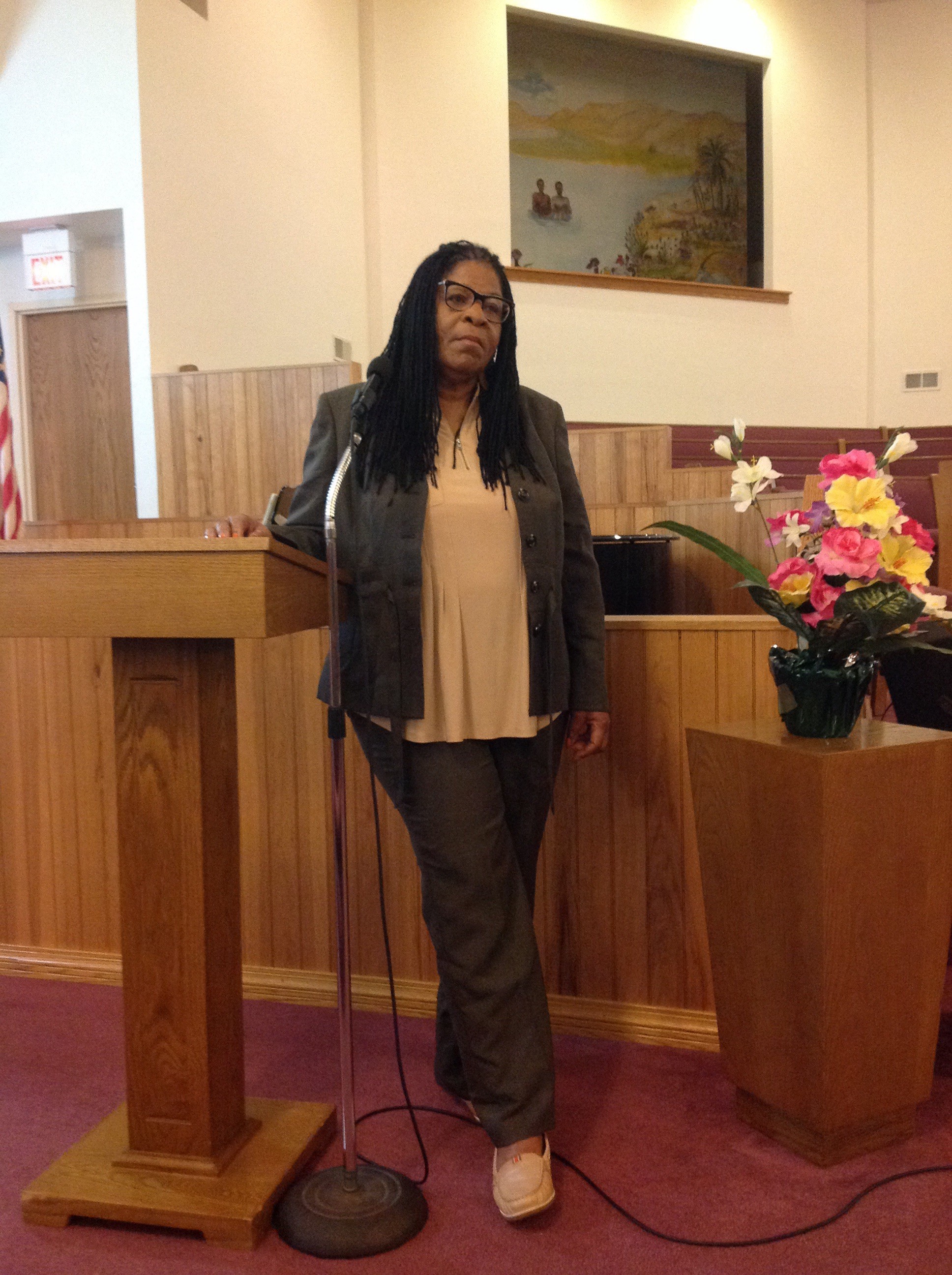I have decided to write about the Education Justice Symposium which is taking place this weekend in Champaign Illinois. I will be tweeting chunks of the conference as we go along so you can get a sense of what folks from all over the country are talking about when they talk about higher Ed in prison.
From last night, here is Susan Burton from A New Way of Life who really has imaginative ideas about reentry because she began with experience. Here son was shot “accidentally” by a cop in LA and that led to years of drugs and alcohol and incarceration. But eventually she developed this program that has offered home to 750 women coming out of prison, A New Way of Life, featured here. Here she is:
First speaker, Friday, October 10, is Rob Granite, a formerly incarcerated person, who told a moving story about watching a mother bird giving birth to babies. He saw a bird struggling after it fell out of the nest, and Rob never got to know what happened to him. He searched, wondered, discovered it had flown away. He tells the story because he identifies with building a nest inside of a precarious place. Rob said that often times, in prison, guys try to ignore that need but others get it. He said that you don’t really attach yourselves to people but he got attached to learning.
The Education Justice Program(EJP) promotes learning in a circle. The circle diffuses the power, he said, discussing his experience in prison with EJP. He has been out only weeks. Also said that in terms of those of us who teach behind bars: No way can the focus be to save people. Being conscious of what perspective a person brings to prison teaching is important. A person is the audience commented that “Everybody has a vibration rate,” and after years in a California prison realizes he needed to understand that and slow down his vibration rate.
Session Two: An incarcerated person from prison said that being an educator is activism. His words came to us through tape and audio. His name is Kemuyah and he feels he has had things withheld because of security. He said “I am unaware of any research” that goes against DOC, indicating that research and education should allowed to him. But it is. This makes it impossible for educational Justice to really exist. Most important info from him talks about how fraternization, punishment, fear, the prison reality that compromises the educational environment. “Educating incarcerated students is serious business.” And prison officials should not be able to use security to resist education or free exchange of ideas. Security must be detrimental I.e. Let’s take the shackles off educators.
When we were able to go into Danville Prison that evening, where papers were given to and by prisoners in the program. I quoted Angela Davis’s words to Kemuyah: “Prisons are an incubator of outdated ideologies,” I said, and asked him to comment on that in relationship to his paper and to all the barriers he had experienced. Isn’t that common, to be expected, I wondered? A discussion ensued where the most interesting comment came from another prisoner who said that it was up to prisoners to open up those barriers and essentially be the change: “As citizens we need to update outdated measures.” It was an incredibly powerful moment that showed more than any other to me what EJP fostered in its program.
I was also impressed earlier in the day by Haneed Shakur, a former student who told us the impact on himself in taking the program where he was in school in prison from 8:30am to 2:30pm. He said education gave him power; and he learned to write. He began reacting to quotes that made sense to him: Ghandi, Martin Luther King Etc. and these he was exposed to first by a teacher when he was in Cook County Jail. Most crucial for him about EJP is that he never felt like an incarcerated person but always was treated as a student.
EJP also presented Barbara Lawrence who was a former prosecutor and police officer—not your average combination to become an activist. She teaches CJ students and said “We are talking about cops, courts, and corrections.” The standard low level criminal pursued by cops, in the so-called War on Drugs, she gradually got to know was false. But financial incentive to arrest and only arresting people of color did exist. She uses the Michelle Alexander discussion to point out why police do not go to rich neighborhoods to get drug users there. When she questioned things, she was transferred. Ultimately she became a prosecutor and hated the fact that she didn’t believe in some of the laws that she had to convict people of breaking. Then she became a public defender and now teaches in a community and Justice program at Guillford College. She left us asking us to think about what is going on in all aspects of this system. And lie Susan Burton, the night before said that the next big fight will be against police brutality.
Today, I’ll leave you with the words of Michael Brawn, another student from EJP who said “Humanities-based education can help us to be better men.” It wasn’t until freedom was taken away that he realized the freedom in education.” While there is a weekend of resistance in Ferguson Missouri, where the name “Michael Brown” resonated for me as I looked at so many of the men of color who live at Danville, it was almost appalling to think they were safer growing up with an EJP education than to grow up on the streets.

